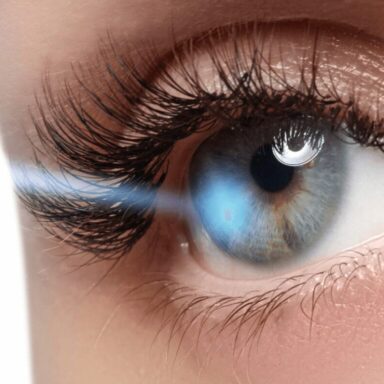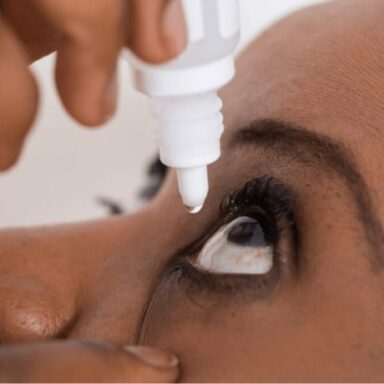Is it hay fever or dry eye?
Posted on 14 April 2022
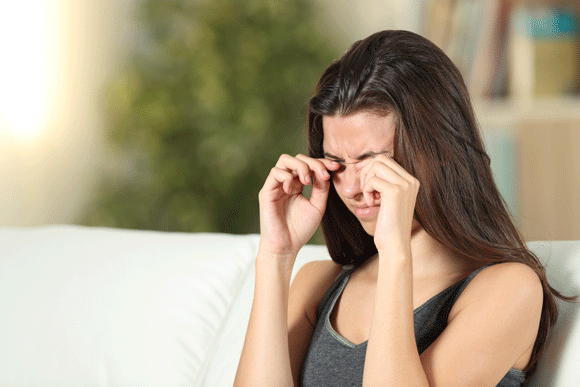
When your eyes are red, itchy and sore, it can be hard to know if you have hay fever or dry eye.
Dry eye and hay fever aren’t just very common, they also have some of the same symptoms. Knowing which one you have is key to choosing the best treatment – and getting relief from your symptoms, fast.
Read on to find out what hay fever and dry eye are, what causes them and how to tell which one you have. With that cleared up, you can give your eyes the TLC they’re craving.
Do I have hay fever or dry eye?
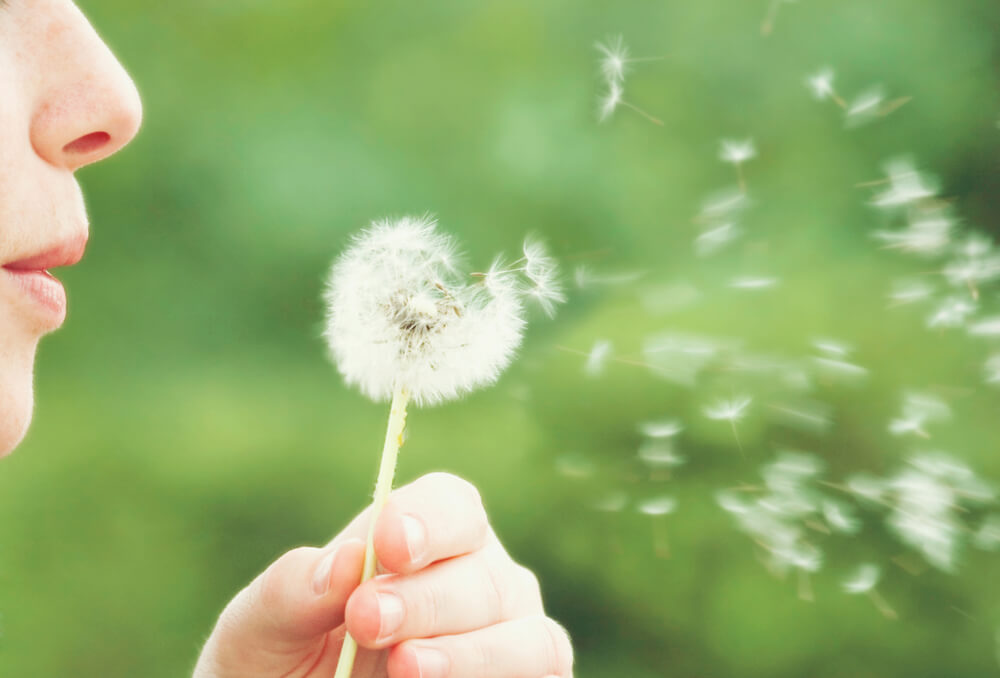
When it comes to your eyes, hay fever and dry eyes can have similar symptoms, which can make telling them apart tricky. But there are some key differences to work out which one is the root cause.
Hay fever, for example, is seasonal. So if you find that your symptoms are worse during the spring and early summer, when pollen is at its peak, and then significantly lessen in the winter, only to reappear in the next spring, it’s likely that hay fever is the culprit.
On the other hand, if you have dry eye, your symptoms may be particularly troublesome during cold, dry winter months, in addition to spring.1
It’s not just the timing that’s different, though! Hay fever and dry eye can have different effects on eyes too.
Some of the eye symptoms may include:2,3,4
| Symptom | Hay fever | Dry eye |
|---|---|---|
| Redness | ✓ | ✓ |
| Itchiness | ✓ | ✓ |
| Swollen eyelids | ✓ | |
| Sensitivity to light | ✓ | |
| Watery eyes | ✓ | ✓ |
| A burning sensation | ✓ | ✓ |
| Dark circles under eyes | ✓ | |
| Blurry vision | ✓ | |
| Worse in winter | ✓ | |
| Worse in summer | ✓ |
Hay fever also has many ear, nose and throat symptoms.2
Now that you have worked out whether you have dry eye or an allergy to pollen, you can find the best treatment for you.
If your symptoms get worse or if you find that things aren’t improving after using treatment, then make sure you speak with your doctor2.
All about hay fever
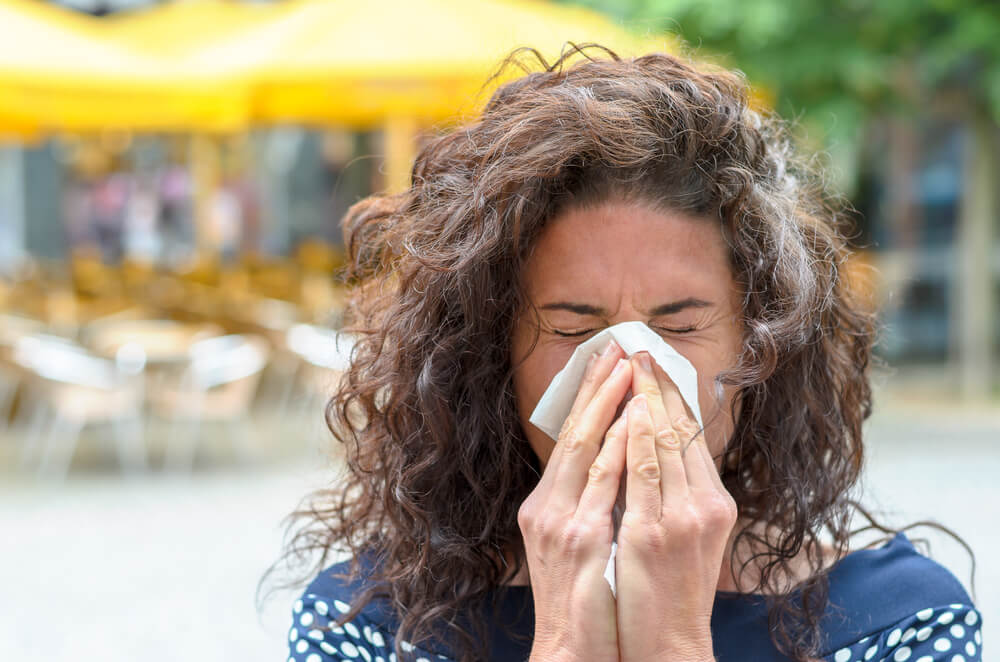
Atishoo! Hay fever is an allergic reaction to pollen and is extremely common, with up to one in five people affected at some point in their life.5
A pinch of pollen can contain thousands of tiny grains6 and, when these find their way into your eyes, nose and throat they trigger a range of symptoms, if you’re allergic to them.
Hay fever is also known as seasonal allergic rhinitis and, as the name suggests, if you have hay fever, your symptoms will usually be worse when pollen levels are high. In the UK, that’s between March and September.2
The symptoms of hay fever
The symptoms of hay fever can vary in severity year to year and even day to day. They can also differ from person to person and can include:2,4
- Itchy, red, watery eyes
- Coughs and sneezes
- Itchy throat, mouth, nose and ears
- Headaches
- Earache
- Feeling tired
- A runny or blocked nose
- Pain around your temples
- Dark circles under your eyes, known as allergic shiners
Causes of hay fever7
- Pollen released by grass is the main culprit and, if you are allergic to it, you will have symptoms from mid-May to July.
- Tree pollen, released during the spring (March to mid-May) from birch, oak, ash, cedar and other trees, sparks symptoms in around ¼ of those with hay fever.
- The pollen from dock, mugwort, nettles and other weeds is usually troublesome from late-June to September, particularly during the autumn.
- You can be allergic to more than one type of pollen.
Fun fact
Hay fever might be making you feel miserable right now but you might find it becomes less of a problem as you get older. One study found that around half of those with hay fever find their symptoms ease with age and, in around 20 per cent of people, they disappear altogether.8
All about dry eye
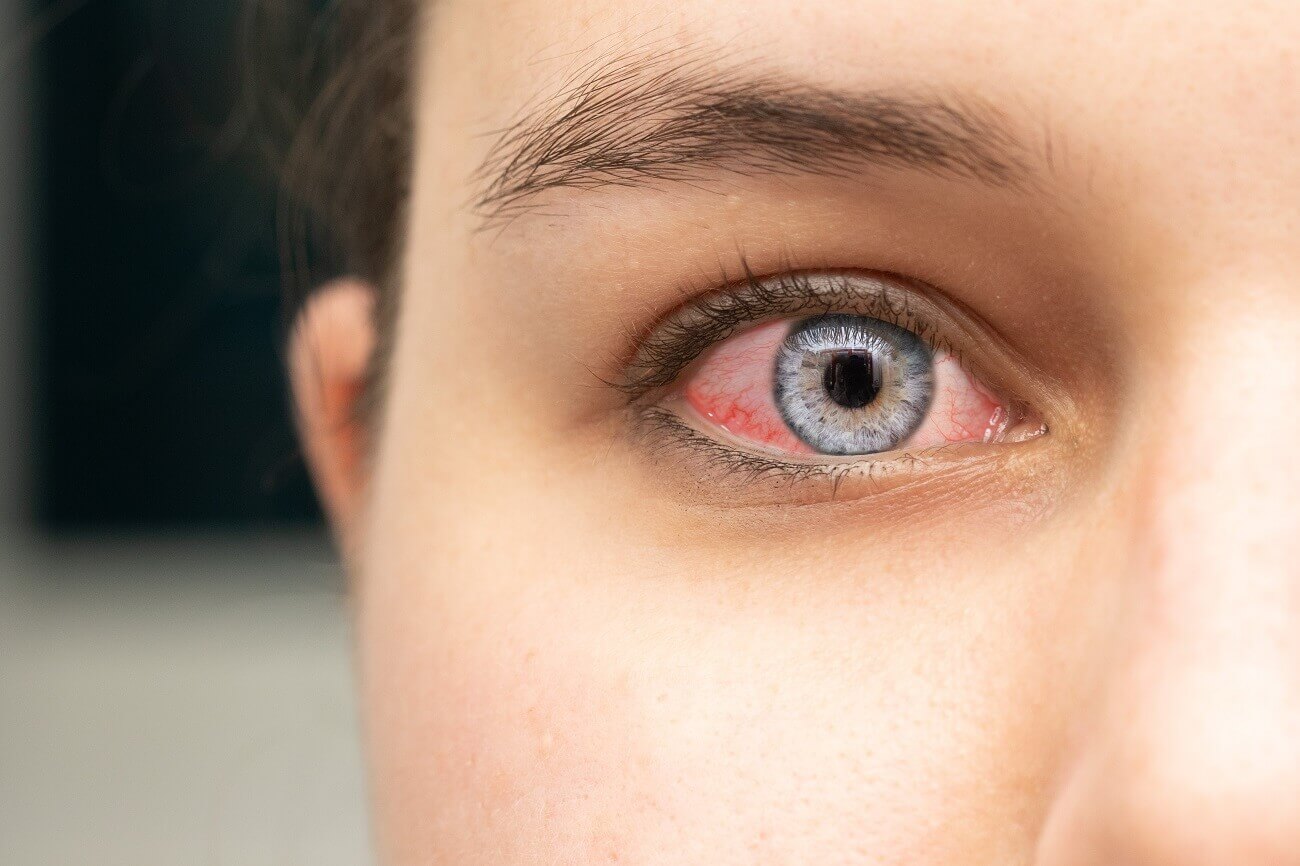
Like hay fever, dry eyes are very common! Up to 100 million people affected globally,9 including 1 in 4 in the UK.10
Sometimes dry eye is called dry eye syndrome or dry eye disease, but these terms all refer to the same condition. Like its name suggests, dry eye is a condition where the eyes are drier than they should be because they don’t make enough tears, or the tears evaporate too quickly.
It usually isn’t serious but that doesn’t mean it can’t be very uncomfortable and stop you from looking and feeling your best.
Symptoms of dry eye
The symptoms of dry eye usually affect both eyes and can include the following:3
- Itchiness
- Redness
- A burning sensation
- Watery eyes
- Heavy feeling eyes
- Blurry vision
- A gritty feeling
- Sensitivity to light
- Eye strain
Fun fact
It might seem odd but overly watery eyes can also be a sign of dry eyes. This is because your body tries to compensate for the lack of tears by upping production. Unfortunately, these extra tears aren’t as high quality or as soothing as normal tears.11
Causes of dry eye
We don’t just make tears when we are sad, we make them in small quantities all the time to soothe and protect the surface of our eyes. Many factors can disrupt the production of tears or lead to them drying too quickly, leaving our eyes red and itchy.12
You’re more like to develop dry eyes if you:12
- Are aged over 50
- Wear contact lenses
- Use screens for long periods without a break
- Spend time in air an conditioned environment
- Smoke or drink alcohol
- Take certain medicines
- Have another medical condition, such as glaucoma
Did you know that the weather can play a role too? If it’s windy, cold or dusty you’re more likely to experience dry eyes.12
What to do if it’s hay fever
If your red and itchy eyes are caused by hay fever there are lots of things you can do to help prevent pollen from irritating your eyes.13,14 Some will be easier than others but why not see which ones work for you?
- Wearing wraparound sunglasses can help to keep pollen out of your eyes
- Bathing your eyes regularly with cold water will wash away pollen
- Staying indoors when the pollen count is high
- Avoiding drying clothes outside
- Keeping your car windows closed
- Vacuuming regularly and dusting with a damp cloth, rather than a dry one
- Shower and changing your clothes when you get home can be helpful too
Top tip
Pets can carry pollen into your home on their fur, skin and paws. Making bath time a weekly event for your furry friend when hay fever is here can be helpful to remove pollen from their coat.15
Treating hay fever eyes
There isn’t a cure for hay fever but the good news is that there are lots of treatments available. You may find you need to try a few, though, to find the best remedy for you.
Your pharmacist can give you antihistamine eye drops to help with redness, itchiness and watering.16 Antihistamines, which also come as tablets and in nasal sprays, work by blocking histamine, a chemical made by the body in those who are allergic to pollen and responsible for many of the symptoms of hay fever – including red, itchy, sore eyes.
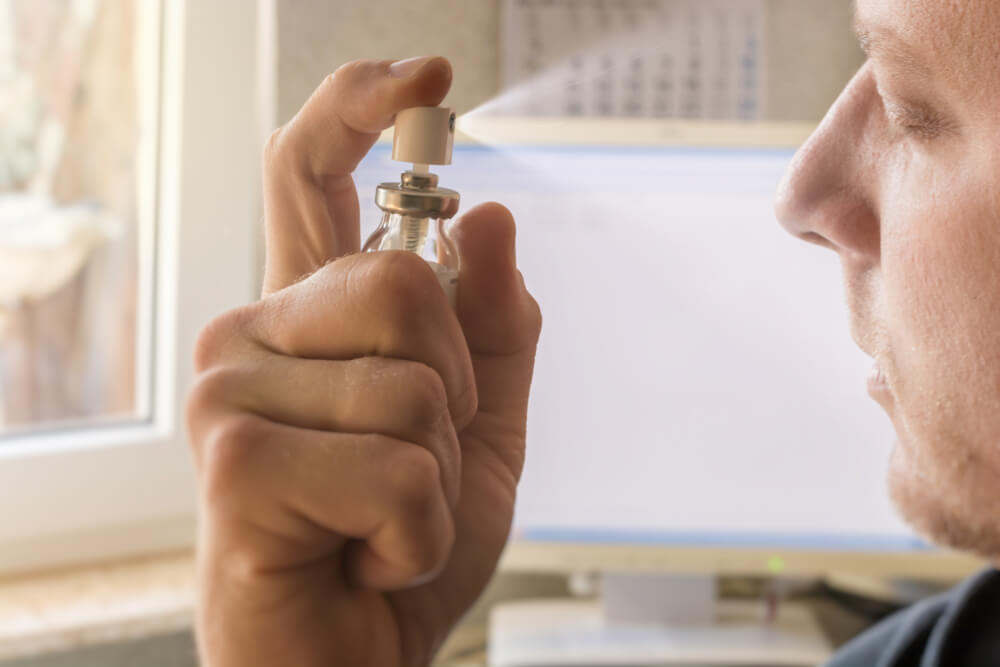
If antihistamines don’t help or your symptoms are more severe, don’t worry as there are lots of other options available. These include decongestant sprays (for blocked noses) and steroid sprays.
What to do if it’s dry eyes
Treating dry eyes can be as simple as topping up your tears. Eye drops, such as Cationorm® can replenish your body’s supply of tears, rehydrate and quickly relieve discomfort.
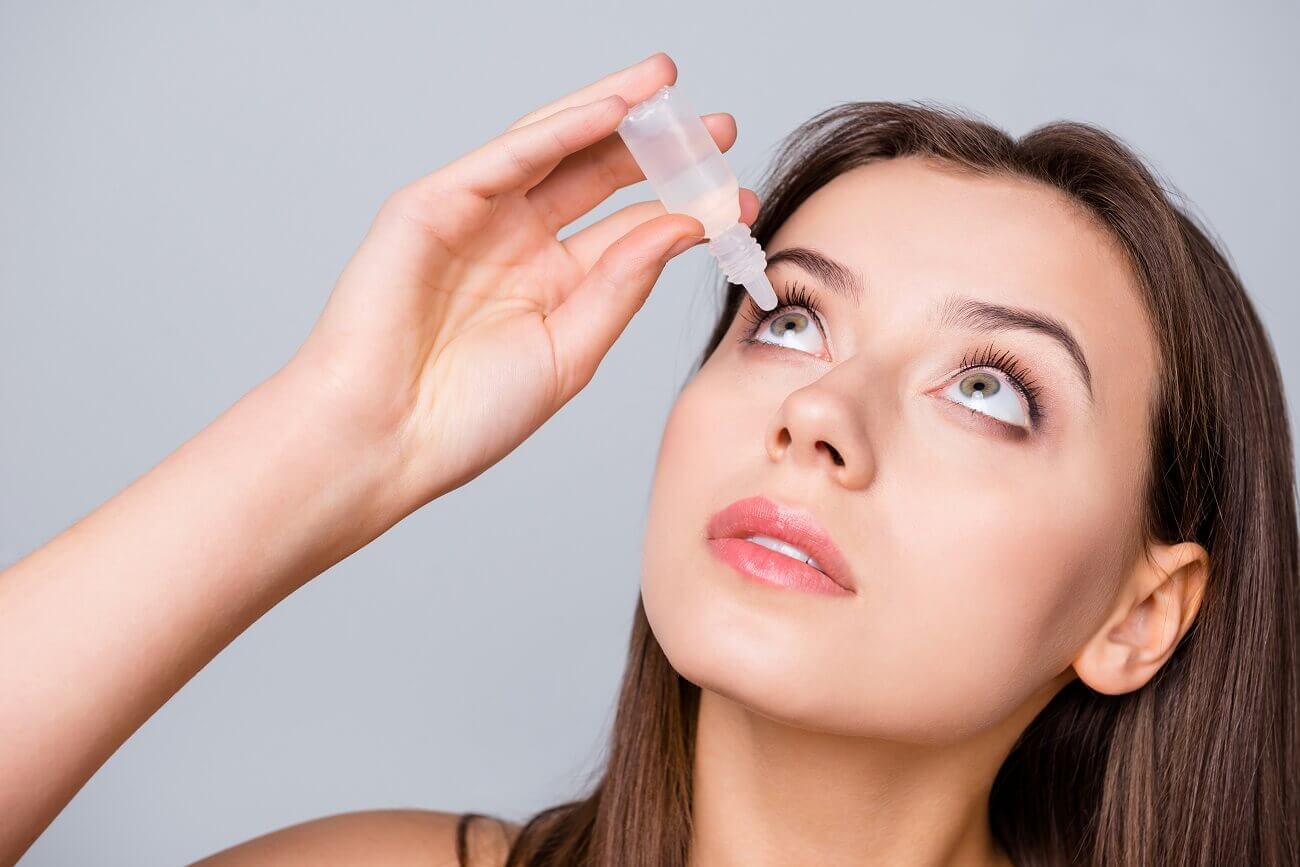
You can also try making changes to your lifestyle to prevent your eye’s natural tears from drying up too quickly. These include:12,17
- avoiding windy or very dry conditions
- limiting use of air conditioning
- taking regular breaks from your computer screen
- using a humidifier and reducing intake of alcohol
When to see a doctor
Knowing just what’s making your eyes red, itchy and sore is the secret to getting the right treatment. It’s important you work out whether you have hay fever or dry eye because antihistamines that are designed to treat hay fever and other allergies can actually make dry eye worse.
If your eyes aren’t getting better despite lifestyle changes and treatment, ask your pharmacist, GP, optician or ophthalmologist about the best treatment for you.


